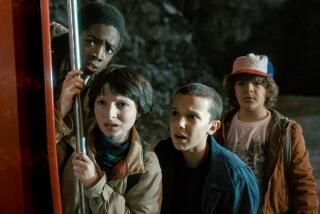Bill Gives No Breaks to Casinos
- Share via
WASHINGTON — Before Hurricane Katrina, the Gulf Coast was well on its way to becoming a popular gambling destination. Now, for the gaming industry, a second storm -- this one political -- is brewing.
Katrina damaged and destroyed many of the casinos that had become increasingly important to the region’s economy. On Capitol Hill, lawmakers are split over whether taxpayers should help rebuild gambling establishments and other businesses objectionable to social conservatives.
The House approved legislation Wednesday to provide tax breaks aimed at spurring the Gulf Coast’s economic recovery, but it excluded casinos from the benefits.
Massage parlors, liquor stores, hot tub facilities, country clubs, racetracks and tanning facilities also would be ineligible.
The provision sets up a showdown with the Senate, which did not include similar restrictions in its post-Katrina tax-relief package.
Some lawmakers argued that the measure unfairly targeted a legal industry that employed about 50,000 people in Louisiana and Mississippi and generated more than $770 million a year in tax revenue.
“Shame on this body for allowing the gaming industry to be discriminated against,” said Rep. Shelley Berkley (D-Nev.).
A core of socially conservative Republicans in the House said it was politically indefensible to provide tax breaks to casinos and some of the other excluded businesses at a time of massive federal budget deficits and spending cuts.
“It would be very difficult, almost impossible, to go to a town meeting sometime and say that I, or the Congress, supported giving tax breaks to rebuild a casino, a massage parlor or a liquor store,” said Rep. Frank R. Wolf (R-Va.).
Wolf also argued that gambling operators didn’t need federal help to rebuild.
Beverly Martin, executive director of the Mississippi Casino Operators Assn., said Congress was not denying a benefit to casinos but to tens of thousands of workers whose jobs were tied to gambling.
“The casinos are the largest employer on the Mississippi Gulf Coast,” she said.
In an interview, Rep. Charlie Melancon (D-La.) expressed chagrin about the controversial provision.
“This thing of trying to impose personal beliefs into law, people are starting to get carried away with it,” he said.
Still, Melancon voted for the measure because of the financial help it would give his region. The bill would allow businesses an additional 50% depreciation deduction for a range of expenses.
One big casino remains closed in New Orleans. On the coast of Mississippi, 13 floating casinos have been shut since Katrina struck in late August, although one is expected to reopen this month and two others early next year.
The provision may not survive House-Senate negotiations on a final bill, given opposition from a number of influential senators. Opponents include Sens. Charles E. Grassley (R-Iowa) and Thad Cochran (R-Miss.).
“Any lawful business activity shouldn’t be excluded” from tax breaks, Cochran said.
Frank Coleman, senior vice president of the Distilled Spirits Council, called the exclusion of liquor stores from the bill “an inexplicable blow.”
“These are small, family-run liquor [businesses] that have lost everything in the hurricanes,” he said. “It seems a little heartless to single them out.”
The House also approved a measure designed to prevent an obscure tax enacted in 1969 from ensnaring 15 million additional taxpayers.
The alternative minimum tax was passed to ensure that the wealthy paid some taxes, no matter how much they benefited from tax breaks. But the thresholds for determining who owed the tax were not linked to inflation.
Since 2001, Congress has been adjusting the thresholds on a yearly basis; 3.5 million taxpayers had to pay the tax based on their income in 2004.
The bill passed by the House would extend through 2006 the levels of income exempt from the alternative minimum tax: $58,000 for couples and $40,250 for singles.
Otherwise, the exemptions would revert to their pre-2001 levels, and nearly 19 million taxpayers would owe some of the tax.
The Senate included a similar provision in a tax-cut bill it passed in November.
The House will vote on its version of that bill today. It includes an extension of one of the tax cuts President Bush strongly supports: a reduced tax rate for dividends and capital gains.
The Senate bill omitted an extension of the investment tax cut, which is due to expire in 2008.
Once the House passes its tax-cut legislation, the two chambers will face the difficult task of crafting a compromise bill.
*
Times staff writer Joel Havemann contributed to this report.
More to Read
Sign up for Essential California
The most important California stories and recommendations in your inbox every morning.
You may occasionally receive promotional content from the Los Angeles Times.











